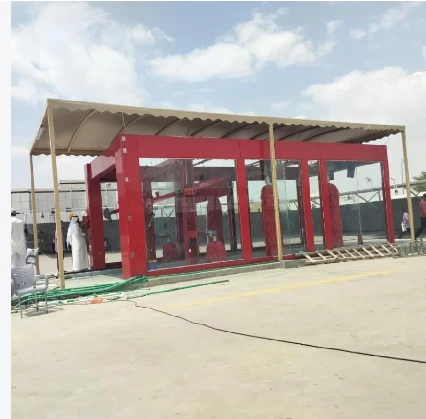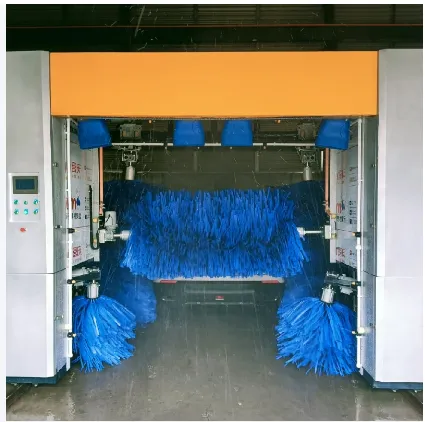
- Afrikaans
- Albanian
- Amharic
- Arabic
- Armenian
- Azerbaijani
- Basque
- Belarusian
- Bengali
- Bosnian
- Bulgarian
- Catalan
- Cebuano
- Corsican
- Croatian
- Czech
- Danish
- Dutch
- English
- Esperanto
- Estonian
- Finnish
- French
- Frisian
- Galician
- Georgian
- German
- Greek
- Gujarati
- Haitian Creole
- hausa
- hawaiian
- Hebrew
- Hindi
- Miao
- Hungarian
- Icelandic
- igbo
- Indonesian
- irish
- Italian
- Japanese
- Javanese
- Kannada
- kazakh
- Khmer
- Rwandese
- Korean
- Kurdish
- Kyrgyz
- Lao
- Latin
- Latvian
- Lithuanian
- Luxembourgish
- Macedonian
- Malgashi
- Malay
- Malayalam
- Maltese
- Maori
- Marathi
- Mongolian
- Myanmar
- Nepali
- Norwegian
- Norwegian
- Occitan
- Pashto
- Persian
- Polish
- Portuguese
- Punjabi
- Romanian
- Russian
- Samoan
- Scottish Gaelic
- Serbian
- Sesotho
- Shona
- Sindhi
- Sinhala
- Slovak
- Slovenian
- Somali
- Spanish
- Sundanese
- Swahili
- Swedish
- Tagalog
- Tajik
- Tamil
- Tatar
- Telugu
- Thai
- Turkish
- Turkmen
- Ukrainian
- Urdu
- Uighur
- Uzbek
- Vietnamese
- Welsh
- Bantu
- Yiddish
- Yoruba
Express Car Wash Tunnel Fast, Affordable Cleaning Solutions
- Industry Growth and Customer Expectations
- Technology Driving Express Wash Efficiency
- Vendor Feature Comparison Matrix
- Tailored Solutions for Different Operations
- Real-World Deployment Case Studies
- Performance Metrics and ROI Analysis
- Implementing Future-Proof Solutions

(car wash express tunnel)
The Rising Demand for Car Wash Express Tunnels
Changing consumer preferences and urbanization patterns are transforming the car care industry. Modern vehicle owners increasingly prioritize convenience, speed, and consistent quality over traditional service models. Statistics show express wash facilities now capture over 62% of the US car wash market, with revenue growing at approximately 4.8% annually since 2020. This shift coincides with dealerships and fuel stations recognizing the value of added revenue streams.
Express tunnel operations deliver 30-second entry-to-exit service while maintaining strict quality standards—a critical factor when 78% of customers cite time efficiency as their primary selection criterion. As labor shortages persist, automated systems minimize staffing requirements while maximizing throughput capabilities. These facilities can process up to 135 vehicles hourly during peak operations.
Consumer pricing expectations show fascinating segmentation. The sweet spot sits between $12-$25 for exterior-only services, while comprehensive packages incorporating ceramic coating options reach $50+ price points without diminishing demand. Premium express tunnels generate over $750,000 annual revenue per bay through high-volume strategies.
Technological Innovations in Modern Wash Systems
Contemporary express car wash tunnels integrate advanced technologies that redefine cleaning efficacy. Precision spray nozzles utilize variable pressure algorithms, reducing water consumption to under 35 gallons per vehicle—a 45% reduction compared to older systems. Chemical optimization through real-time conductivity monitoring ensures exact dilution ratios, increasing sealant effectiveness while lowering operational costs.
Dimensional scanning technology has revolutionized vehicle handling. Laser-profiling systems create 3D maps of each automobile, adjusting brush positioning within milliseconds. This prevents damage to spoilers, roof racks, and side mirrors—concerns raised in 26% of customer complaints about conventional washes. Additional protective features include:
Multi-angle wrap brushes with tension monitoring systems
Reclaimed water filtration achieving 95% reuse rates
Touchless drying arrays delivering 127 mph air velocity
Digital license plate recognition for loyalty program integration
Comparative Analysis of Industry Solutions
| Feature | WashTek ProLine XT | AutoClean Velocity | HydroWash ExpressMaster |
|---|---|---|---|
| Vehicles Per Hour | 120 | 95 | 135 |
| Water Reclamation Rate | 85% | 72% | 93% |
| Power Consumption (kWh/wash) | 2.4 | 3.1 | 1.9 |
| Average Maintenance Costs | $0.38/wash | $0.51/wash | $0.29/wash |
| Chemical Efficiency | 15% savings | Standard | 22% savings |
Customization for Operational Requirements
Leading suppliers offer modular designs adaptable to spatial constraints and service models. Fuel station installations typically utilize 80-foot tunnels handling 90 vehicles hourly, whereas standalone facilities implement 140-foot configurations enabling chemical dwell optimization. Three primary design configurations dominate the market:
Conveyor Systems: Standard belt-driven designs for rapid exterior processing
Roller-Push Platforms: Minimum infrastructure installations with 12% lower setup costs
Dual-Track Layouts: Simultaneous processing of large trucks alongside passenger vehicles
Chemical customization delivers competitive advantages. Urban locations with hard water benefit from specialized demineralization rinses, while high-pollen regions see 18% upsell potential with dedicated allergen removal packages. Tunnel illumination choices impact perceived quality—facilities implementing dynamic LED lighting report 7% higher customer satisfaction scores.
Operational Case Studies
Multiple deployments demonstrate the practical benefits of express car wash tunnel systems. PetroServe Ohio converted underutilized fuel station space into dual-bay operations yielding remarkable results:
Location: Columbus suburban fuel center
Investment: $415,000
Payback Period: 14 months
Monthly Revenue: $42,300
Customer Retention: 68% through unlimited wash programs
Commercial fleets increasingly implement onsite express tunnels. Trucking company JBS Logistics installed a custom wide-load system reducing offsite wash expenses by 64% while eliminating scheduling delays. The configuration processes 53 tractor-trailers daily during normal operations.
Financial Performance Indicators
Financial performance analysis reveals critical trends across the express wash sector. Mid-sized facilities demonstrate average gross margins between 58-65%, substantially higher than traditional full-service models. Revenue distribution typically breaks down as follows:
Exterior Express: 44% of transactions @ $10-18 price point
Protective Coatings: 31% of revenue @ $25-40 packages
Subscription Plans: 63% customer retention with $19-29 monthly plans
Regional pricing variations require careful calibration. Facilities in metropolitan corridors command express car wash tunnel price premiums averaging 22% over rural counterparts while maintaining comparable volumes. Labor costs typically represent just 18% of operational expenses due to automation, compared to 45% in staffed facilities.
Optimize Your Business with Car Wash Express Tunnel Solutions
Implementing modern car wash express tunnel
systems represents a strategic investment in operational efficiency and customer satisfaction. Facilities integrating sensor technology and automated payment systems reduce transaction times to under 45 seconds while eliminating staffing bottlenecks. Regular chemical calibration and nozzle maintenance preserve quality standards across thousands of washes.
The industry continues evolving through IoT integration and predictive maintenance platforms. Leading operators now monitor component performance remotely, reducing downtime by 27% through proactive servicing. Forward-looking investments position businesses for future regulatory compliance while meeting consumer expectations for instantaneous, high-quality vehicle care.
When considering express car wash tunnel price factors, comprehensive operational metrics prove more valuable than initial equipment costs alone. Solutions demonstrating chemical efficiency and minimal water consumption deliver substantial long-term savings while appealing to environmentally conscious consumers—now representing 41% of the market.

(car wash express tunnel)
FAQS on car wash express tunnel
Q: What services does a car wash express tunnel offer?
A: A car wash express tunnel provides automated, high-speed exterior cleaning, including pre-soak, washing, rinsing, and drying, all completed in under 10 minutes. It focuses on quick, efficient service for busy customers.
Q: How much does an express car wash tunnel cost?
A: The express car wash tunnel price typically ranges from $10 to $25 per wash, depending on location and package options. Premium add-ons like waxing or tire treatments may increase the cost.
Q: How long does a car wash express tunnel take?
A: Most car wash express tunnel services take 5-10 minutes from entry to exit. The automated system ensures faster processing compared to traditional hand-wash methods.
Q: What makes an express car wash tunnel different from regular car washes?
A: An express car wash tunnel uses advanced conveyor systems and specialized equipment for rapid, consistent cleaning. It prioritizes speed and efficiency without requiring customers to exit their vehicles.
Q: Are express car wash tunnels safe for all vehicle types?
A: Yes, modern express car wash tunnels are designed with soft-touch materials and sensors to accommodate sedans, SUVs, and trucks. However, oversized vehicles or those with custom modifications should consult staff first.
-
Integrating Aqua Tunnel Car Wash in Shopping CentersNewsJun.24,2025
-
Gas Station with an Auto Car Wash MachineNewsJun.24,2025
-
Efficiency in Your Aqua Tunnel Car Wash: Power & Water-SavingNewsJun.24,2025
-
Car Wash Business with Advanced Auto Car Cleaning MachinesNewsJun.24,2025
-
Balancing Setup Costs with Aqua Tunnel Car WashNewsJun.24,2025
-
Aqua Tunnel Car Wash: Eco-Design for the Energy-Savvy EntrepreneurNewsJun.24,2025



